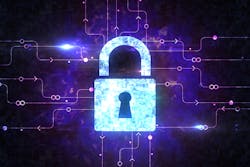DOE Invests $28 Million to Advance Cybersecurity of U.S. Energy Infrastructure
The U.S. Department of Energy this week announced awards of up to US$28 million to support the research, development, and demonstration (RD&D) of next-generation tools and technologies to improve the cybersecurity and resilience of the nation's critical energy infrastructure, including the electric grid and oil and natural gas infrastructure. With funding provided by the Office of Cybersecurity, Energy Security, and Emergency Response’s (CESER) Cybersecurity for Energy Delivery Systems (CEDS) Division, research partnerships will create and make available innovative technologies that help prevent, detect, and mitigate cyber attacks. The teams will pursue innovative approaches such as redesigning the current architecture that exposes the energy grid to cyber threats so that existing and future energy delivery systems can detect adversarial actions and adapt to survive while continuing to support critical functions.
“Protecting the Nation’s energy delivery systems from cyber-threats is a top national priority,” said U.S. Secretary of Energy Rick Perry. “These awards will spur the next level of innovation needed to advance cyber resilience, ensuring that the Nation’s critical energy infrastructure can withstand potential cyber attacks while also still keeping the lights on.”
Each awarded project has a clear path to develop technology that will meet the energy sector’s stringent operational requirements of energy delivery systems that reduce cyber risks. These awarded projects advance the strategy articulated in the DOE Multiyear Plan for Energy Sector Cybersecurity to reduce cyber risks by pursuing high-priority activities that are coordinated with other DOE offices, across Federal agencies, and with energy owners and operators as well as key energy stakeholders in the private sector. Final award amounts are subject to negotiation.
To date, the CEDS program has developed and transitioned 35 technologies to the energy sector by partnering with industry, cybersecurity vendors, academia, and National Laboratories as highlighted in the report CEDS R&D: From Innovation to Practice – Redesigning Energy Delivery Systems to Survive Cyber Attacks. Today’s investment continues DOE's long history of working closely with public and private partners to advance the shared vision of resilient energy delivery systems that are designed, installed, operated and maintained to survive a cyber incident while sustaining critical functions.
Award winners include, among others:
- ABB, Inc., partnering with Iowa State University and University of Illinois Urbana-Champaign, for Cyber Resilient Flexible AC Transmission Systems (FACTS).
- ABB, Inc., partnering with Duke Energy, Oak Ridge National Laboratory (ORNL), University of Illinois Urbana-Champain, for Security Enhancements in IEEE-1547 Environments Integrating DER and Area Power Systems.
- Dragos, partnering with Ameren, First Energy, Idaho National Laboratory (INL), NERC E-ISAC, and Southern Company, for The Neighborhood Keeper. The project team will develop, and demonstrate a low-cost cloud-enabled sensor network.
- GE Global Research, partnering with Electric Power Board of Chattanooga, MITRE, Oak Ridge National Laboratory (ORNL), and Qubitekk for Time-Sensitive Quantum Key Distribution.
- Schweitzer Engineering Laboratories, Inc., partnering with Bonneville Power Administration (BPA), Dragos, and Juniper Networks, for The Ambassador Project. The project team will develop security orchestration for a software defined networking (SDN) flow controller.
For the full list, see the DOE website.
